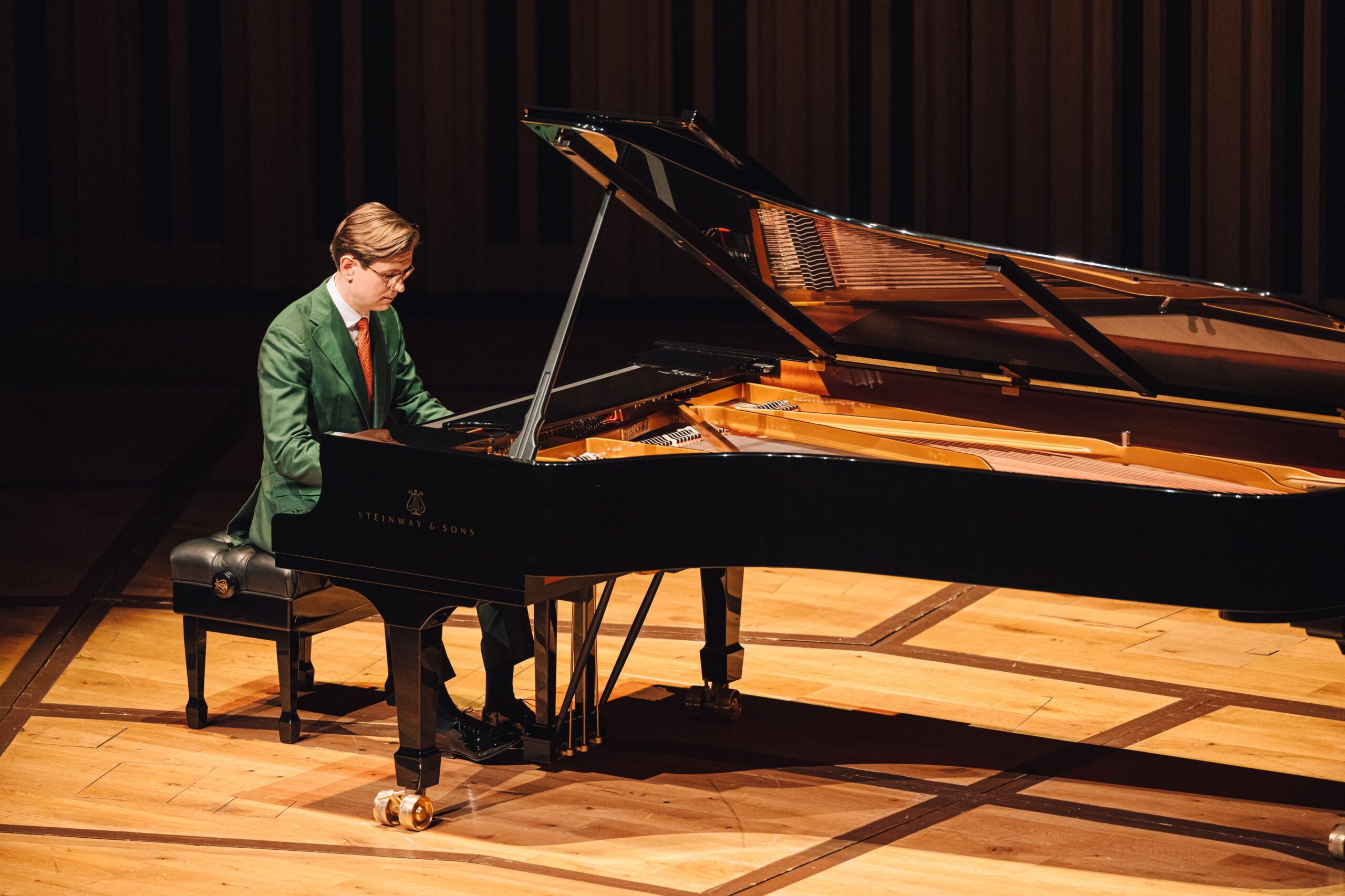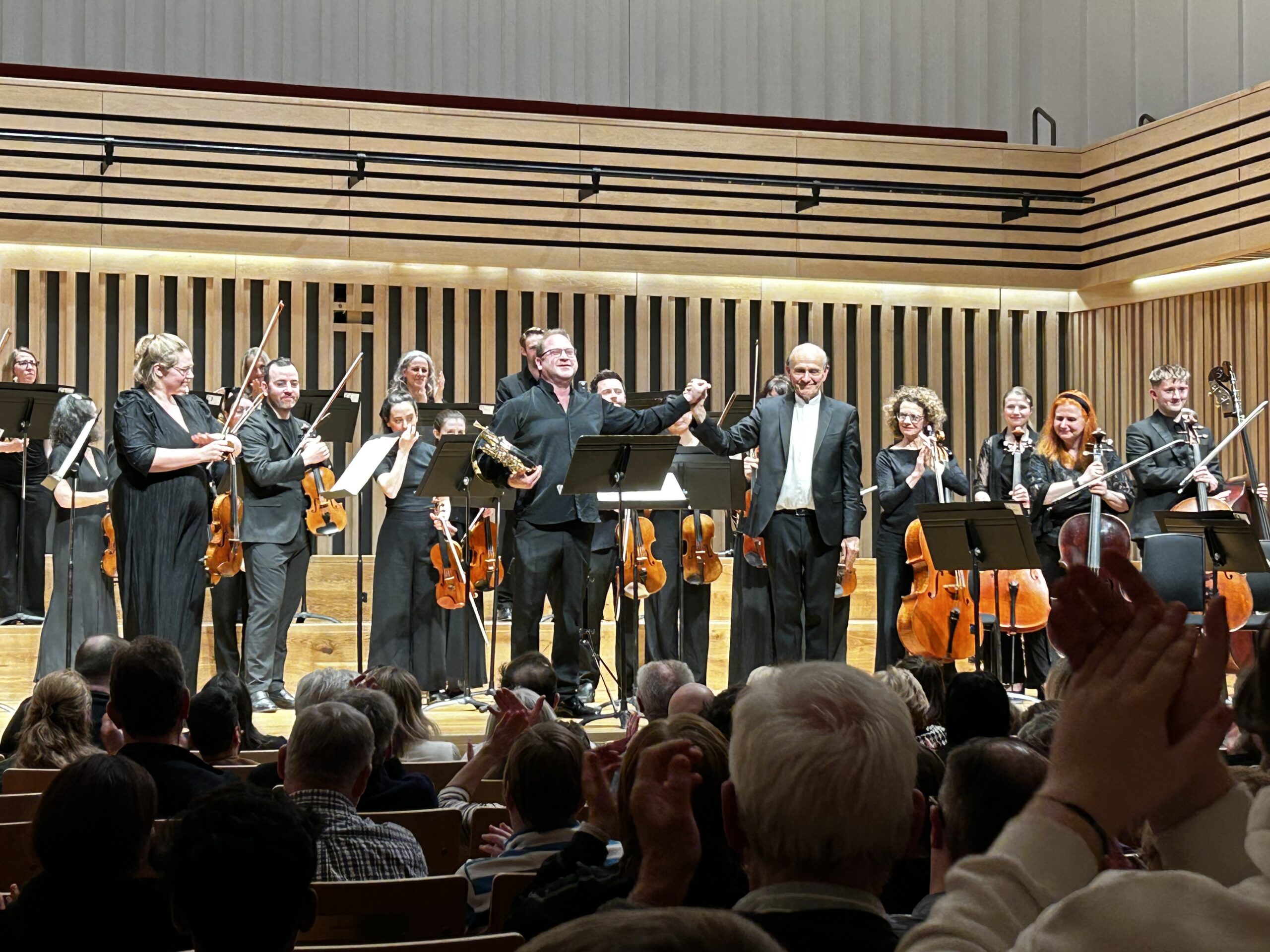Two international conservatoires join forces in a celebration of fairytale nymphs, nature, and astrological mysteries
Joining forces for Prom 46 in a programme of music by Sibelius, Lara Poe and Gustav Holst on Sunday 25 August 2024, were members of the Sibelius Academy Symphony Orchestra with the Royal College of Music Symphony Orchestra and Chamber Choir. Sakari Oramo – Head of Orchestral Education at Sibelius Academy – conducted the combined ensemble.
The combined orchestra showcased a cross-section of the quality and dedication of conservatoire training in London and Helsinki, reinforcing the role these institutions (and others across the country) play in training musicians for the orchestral profession – a story that doesn’t necessarily get the attention it should.

Sibelius’ orchestral ballad The Wood Nymph set the 68-strong string players to work with characteristic busy articulation. Fingers were seen scurrying around the fingerboards – the double basses in particular. Spirited woodwind cues provided much-need focus preventing this extended sequence which did otherwise breed a sense of impatience in the listener.
When the material finally breaks out into something approaching a release, an uplifting anticipatory brass cue transitions into a moment of broad expansive melody.

Later, a charming cello solo played by Liris Piri (pictured) and doubled on principal horn feels as though it’s the real heart of the 18-minute piece. It’s here where the really satisfying material resides.
The concluding section is dominated by sonorous writing for strings see the string section really come into their own seemingly tearing the sound from their instruments to great effect. All on stage have done well with material that at times feels disjointed.
The BBC commission saw Finnish-America composer Lara Poe’s Laulut maaseudulta (Songs from the Countryside) draw on first-person recollections of Finnish cattle farming from Poe’s grandmother and aunt. These recollections paint a picture of another world and time, one still affected by war and conflict.
Poe was inspired by soprano Anu Komsi’s previous BBC Symphony Orchestra appearance in which the Finnish singer began performing in the traditional Nordic ‘kulning’ meaning ‘cow-calling’.

The same style is featured throughout the work – an assertive musical statement that is both reassuring and insistent, rooting the listener in a lush landscape.
Poe’s musical language is captivating, with inventive orchestrations supporting an expansive piece of storytelling. Her calling card is her writing for voice, here drawing on the full range of Anu Komsi’s vocal production.

Komsi is spirited, adept and hugely expressive, bringing all the unfamiliar elements in this new work into a coherent whole. In her list of works and scores, Lara Poe has one 25-minute chamber opera – The Fermi Paradox. A longer operatic commission must surely be on the cards at some point in the future.
In Holst’s Planet Suite, the orchestra swelled to over 100 players. The strings felt underpowered in earlier movements, lacking the menacing edge to the militaristic opening of Mars.
A more viscerally muscular sound from the strings was evident in Jupiter during the rousing noble hymn that sits at the core of the movement. Wind and brass were strong throughout with crystal clear articulation, mystical colours, and tantalizing textures.

Listened to without the astrological context as simply an orchestral score, Holst’s score is a remarkable achievement, brimming with technicolour detail. There are times when it even feels like a concerto for two sets of timpani.
There are some fiendish sequences for the horn section in Uranus, The Magician—all off-beat staccato quavers at a rip-roaring speed—that were deftly executed en masse. No mean feat. Saturn was one of the high points of the work, second only to the climactic chords in Uranus where the addition of the organ shook the building and its occupants to their core.

Here the stars of the show were undoubtedly Julie Scheuren and Atte Karhinen, Scheuren in particular owning the role with power and verve.
The 32-strong Royal Chamber Music Chamber Choir (pictured below) created a strong sound that provided a new take on the usual wispy etherealness that usually concludes performances.

The bringing together of two international conservatoires in one concert is the present-day manifestation of what used to be described as a training orchestra. By banking on two conservatoire brand names, expectations are set high.
The combined forces undoubtedly delivered, some of the in-auditorium imbalances resolved in the radio and TV broadcast. Lara Poe’s appealing musical language in Songs from the Countryside opens the door to discovering more large-scale works from both her back catalogue and forthcoming commissions.
The orchestra’s performance of Holst’s Planets Suite highlighted the composer’s considerable score, illustrated with some sparkling woodwind playing and terrifying timpani cues. A sometimes long but otherwise rewarding evening.




